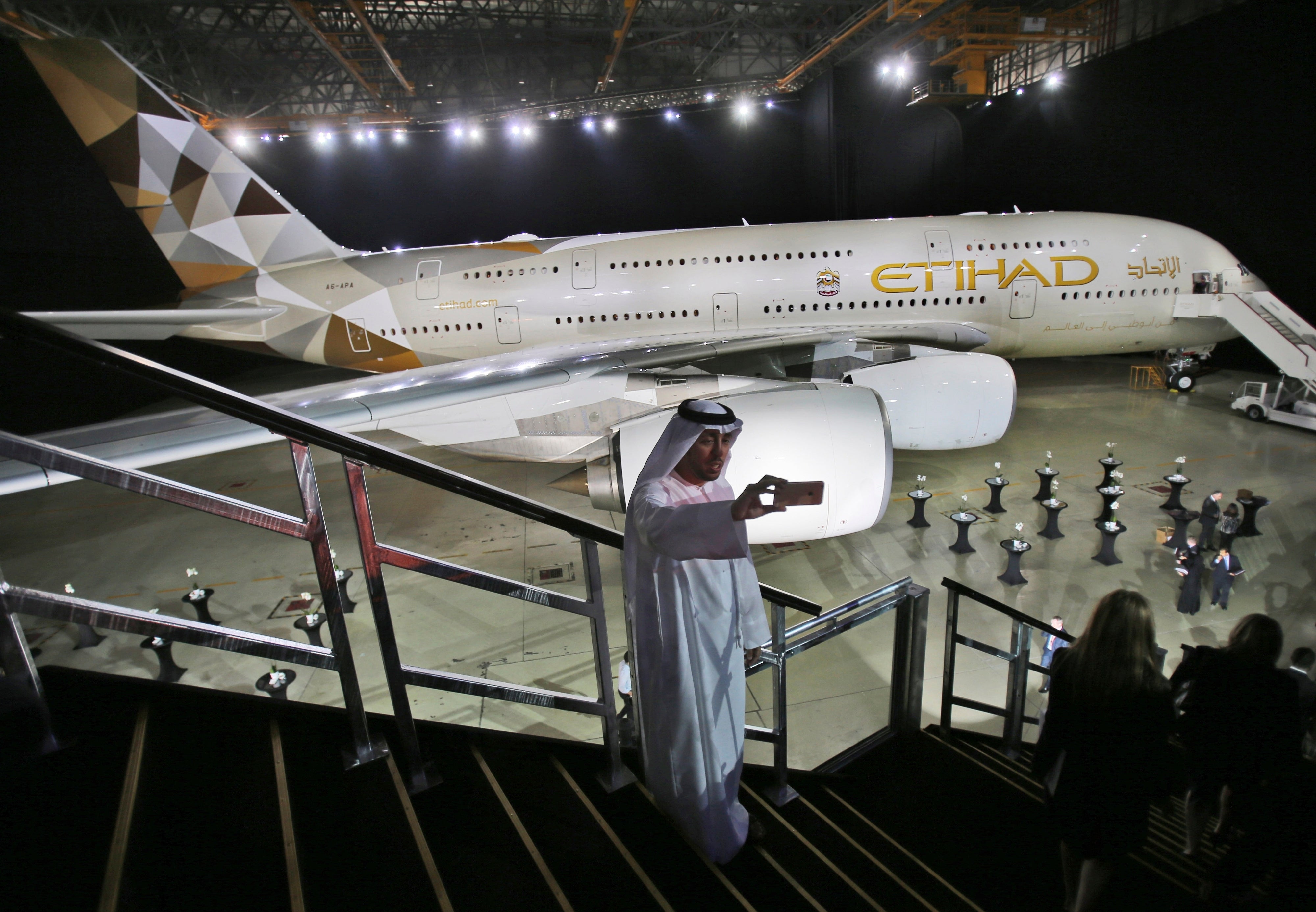Abu Dhabi's Etihad Airways sees a $143 million profit in 2023 as passenger numbers rise
Abu Dhabi-based Etihad Airways says it saw a $143 million in profit last year, citing an increase in passengers as fueling the gains

Your support helps us to tell the story
From reproductive rights to climate change to Big Tech, The Independent is on the ground when the story is developing. Whether it's investigating the financials of Elon Musk's pro-Trump PAC or producing our latest documentary, 'The A Word', which shines a light on the American women fighting for reproductive rights, we know how important it is to parse out the facts from the messaging.
At such a critical moment in US history, we need reporters on the ground. Your donation allows us to keep sending journalists to speak to both sides of the story.
The Independent is trusted by Americans across the entire political spectrum. And unlike many other quality news outlets, we choose not to lock Americans out of our reporting and analysis with paywalls. We believe quality journalism should be available to everyone, paid for by those who can afford it.
Your support makes all the difference.Abu Dhabi-based Etihad Airways announced Wednesday earning a $143 million profit last year, citing an increase in passengers as fueling the narrow profit.
Though slim, it represents success for the long-troubled airline, which like other carriers suffered massive losses during the lockdowns of the coronavirus pandemic.
Etihad saw revenue of $5.5 billion in 2023, compared to $4.9 billion in 2022. Its profit in 2022 was just $25 million. It reported a loss of $478 million in 2021 and a staggering $1.7 billion loss in 2020.
Etihad flew 14 million passengers last year, compared to 10 million the year before.
“Our task at hand is to further strengthen our business as we continue our growth strategy and pursue further margin expansion opportunities,” Etihad CEO Antonoaldo Neves said in a statement.
Abu Dhabi’s rulers launched Etihad in 2003, rivaling the established Dubai government-owned carrier Emirates, which boasts a larger fleet and a far-flung network. Emirates flies out of Dubai International Airport, located only 115 kilometers (70 miles) away from the capital of Abu Dhabi. The two airlines compete in the long-haul carrier market, using their nation’s location as a key east-west transit point to their advantage.
Etihad struggled with its business plan and underwent cost-cutting measures even before the pandemic. Since 2016, Etihad has lost some $6 billion as it has aggressively bought up stakes in airlines from Europe to Asia to compete against Emirates and Qatar Airways.
Etihad's network now flies to 72 locations with a fleet of 85 aircraft.